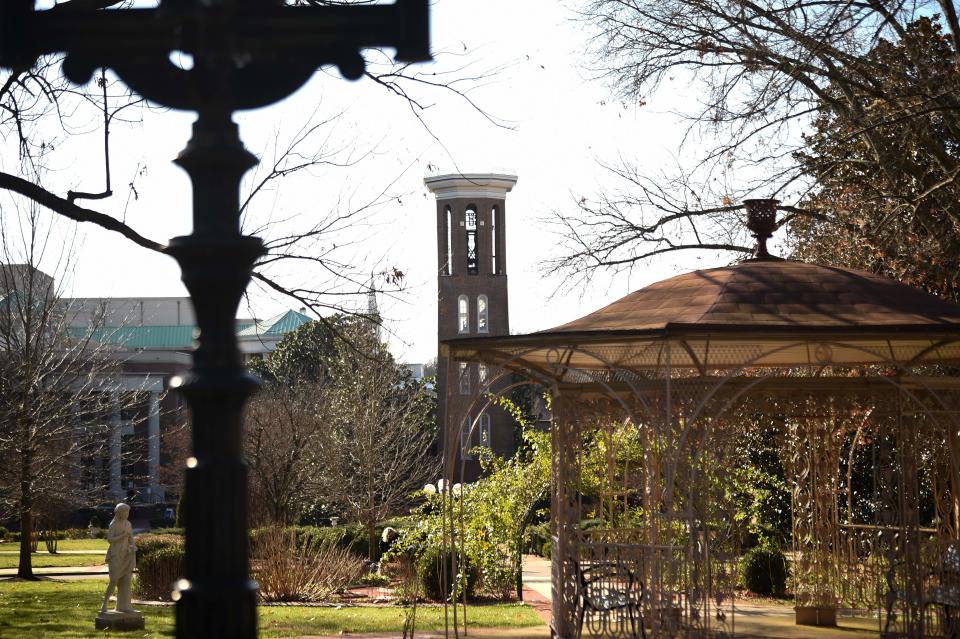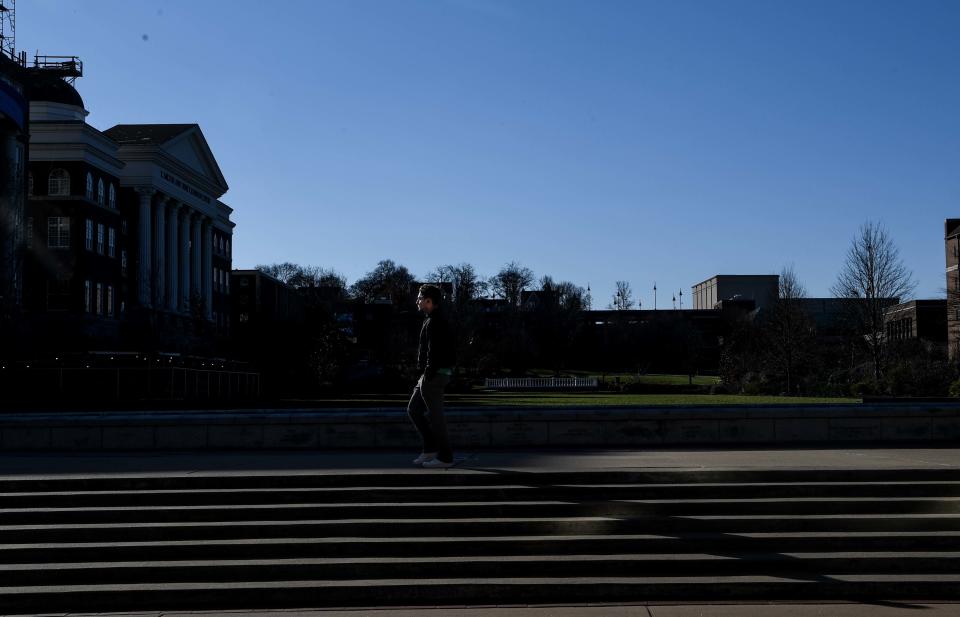Why Nashville's Belmont University is hiring non-Christian faculty and staff
Belmont University broadened its criteria for hiring faculty and staff “regardless of religious faith,” effectively opening the former Southern Baptist-affiliated college to Muslim, Jewish, and other non-Christian faculty.
The decision, a revised nondiscrimination policy, is both a big step forward for Belmont and a response to ongoing changes accompanying an increasingly diverse student body. It’s the latest iteration of the university’s shift to retain aspects of its Christian heritage, while also dissolving other exclusionary policies commonly associated with evangelical higher ed.
Belmont President Greg Jones emphasized in an interview the move is not a diversion from that Christian heritage, but an extension of it.

“It’s been a two-fold process of how we go deeper in our Christ-centered mission and be hospitable to others,” Jones said. “We’ll still primarily hire people of Christian faith on our faculty and staff, but this opens up a broader sense of hospitality, welcome and embrace that also fits the profile of our student body.”
One percent of Belmont’s student body this past spring semester identified as Muslim and 1% identified as Jewish, according to internal university data. Fifty-two percent identified as Protestant and 15% as Catholic. There were more than 7,000 total full-time undergraduate and 1,500-plus graduate students enrolled at Belmont, according to the most recent data from the fall 2022 semester reported by the Integrated Postsecondary Education Data System.
Many of those students are entering career fields with no specific faith-based affiliation.
“Whether you think about music and entertainment, healthcare, or business and entrepreneurship, we’re preparing people not just to lead in Christian institutions,” Jones said.

Belmont’s law and medical graduate schools were already exempt from the nondiscrimination policy due to accreditation standards. Reviewing those accreditation standards for Belmont’s new medical school inspired the university to apply similar standards to the other graduate schools and at the undergraduate level.
The previous nondiscrimination policy asked faculty and staff to be a member of a local Christian congregation. That request for local church membership might change under the revised nondiscrimination policy, though it will still ask faculty to be committed to Belmont’s “Christ-centered mission.”
With Jones’ hiring in 2021, Belmont has been experimenting with a new model for faith-based higher education. Critically through a label change from “Christian” to “Christ-centered,” Belmont has sought to still espouse Christian values while practicing intentional ecumenism.
It announced in December 2022 it would recruit Jewish faculty for certain graduate schools. It also launched a Judeo-Christian Studies Initiative and an endowment for Jewish studies the prior year. This January, Belmont announced it hired Rabbi Mark Schiftan, rabbi emeritus of The Temple in Nashville, as a Jewish Student Advisor.
But that interfaith dialogue hasn’t always come easily. An April 2023 event featuring a Christian organization that evangelizes to Muslims drew criticism from Belmont’s Muslim Student Association and Nashville community leaders. Jones apologized in response and asked his cabinet to review guidelines for guest speakers on campus.
Jones said the recent hiring policy revision signals Belmont’s intention to listen to and elevate minority perspectives within its community. Plus, the amended nondiscrimination provision “will expand the pool of talent who we think we could recruit,” said Jones. The president hopes those changes will take effect within the next academic year.

The precedent for many of the more recent, major changes at Belmont was the university’s decision to formally sever ties with the Tennessee Baptist Mission Board in 2007 after the university sought to appoint board members who are not Baptist. Subsequently, it removed “homosexual behavior” from the list of prohibited behavior in the school's Code of Student Conduct.
Criteria for employees’ faith identity and students’ behavior is common at many Protestant-affiliated colleges that explicitly market themselves as evangelical. But many Catholic-affiliated colleges have long hired faculty and staff with a more diverse array of religious backgrounds.
In a similar fashion, Jones said the recent policy revision “is actually heightening the bar for us to articulate what it means to be a Christ-centered institution.”
Recent Greg Jones opinion column: 'Christ Rising' statue reminds us to challenge ourselves to choose humility, joy and hope
Liam Adams covers religion for The Tennessean. Reach him at ladams@tennessean.com or on social media @liamsadams.
This article originally appeared on Nashville Tennessean: Why Belmont University is hiring non-Christian faculty and staff

